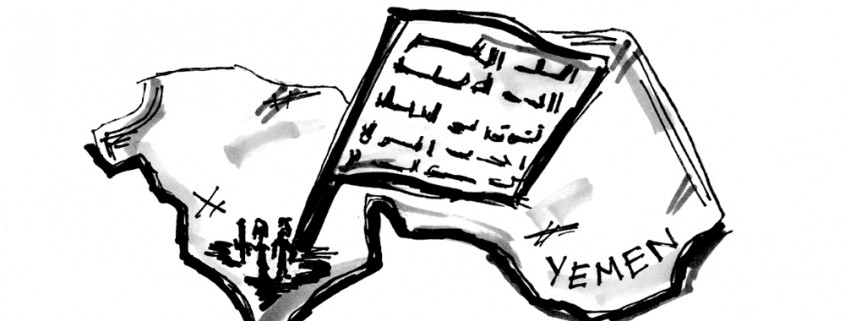U.S. interference would cause more trouble in Yemen
For decades, Yemen has been marked by economic turmoil and political instability. This unrest came to a peak Sunday as Houthi rebels — Shiite Muslims who feel discriminated against in a mostly Sunni nation — took over Taiz, Yemen’s third largest city. With the capital city, Sanaa, already surrendered to the insurgents, U.N. officials have declared the nation as “on the edge of civil war.” The unstable security issue has prompted the 100 American Special Operations forces members previously stationed in Yemen to withdraw, illustrating that diminishing American military involvement in the conflict is the most beneficial for international relations.
Yemen, though not a country typically at the forefront of conflicts in the Middle East, directly affects many Western nations due to its position as a safehouse for terrorist operations such as al Qaeda and ISIS. Extremist takeover further establishes opacity for these terrorist groups during a time when intelligence is essential in providing insight into these organizations that are shrouded in mystery. So, it’s understandable for the U.S. to assert a role in the fighting in Yemen.
Further analysis, however, reveals the unnecessary and even harmful results of U.S. military participation. For one, history suggests failure when American troops get involved. During the Vietnam War, the U.S. aided South Vietnam in fighting communist agenda, but did not succeed in the eradication of communism. In addition to not meeting their goals, American forces were overrun by the North Vietnam communist power. While fighting communism in Cuba, the U.S. was met with some of the same results as they did in Vietnam, blasted by even more violence when helping Cuban rebels. But perhaps the most glaring example of negative U.S. foreign action has been the wars in Afghanistan and Iraq. With the War in Afghanistan drawing out for more than 14 years and claiming thousands of soldiers’ and civilians’ lives a 2013 Washington Post poll revealed that the majority of Americans do not think that the war was worth fighting. These past occurrences indicate a need for an alternative to military force.
An alternative was proposed by U.N. official Jamal Benomar, who said, that “peaceful dialogue is the only way forward.” And though Benomar acknowledged the fragile and dangerous state of Yemen, his sentiment relayed that the whole world needs to work together in order to resolve this difficult issue. Rather than having American forces aggressively attack the nation and sacrificing innocent lives in the process, the United States and its allies must enter into negotiations with the rebel forces. This way, events such as the Mosque bombings in Sana’a and battles between the two Yemeni factions can subsist.
Furthermore, pro-Hadi-United States efforts to contain the Houthi rebels must dissipate. In recent years, Yemen and the U.S. have worked closely together to defeat terrorist groups like al Qaeda, even joining forces to kill Anwar Awlaki, an important al Qaeda figure, in 2011. President Barack Obama has praised this partnership, saying “partnering and intelligence-sharing with that local government” is the most effective method of eliminating terrorism. But that was then. With Yemen’s current political milieu, it is hard to maintain relations with a nation bogged by supreme distress, Hadi having been deposed after the coup at Sana’a. With no apparent leader and persistent factions fighting each other, the U.S. engaging in a further relations with Yemen could lead to infractions upon our domestic tranquility.
Hopefully, as Hadi optimistically puts it, “the Houthis will not last.” Though the Houthi insurgents are a domineering group imposing terror upon the Yemeni population, they can be halted with the sheer power of negotiation before even considering drastic measures such as using violence.
Danni Wang is a sophomore majoring in psychology. She is also the editorial director of the Daily Trojan. “Point/Counterpoint” runs Tuesdays.

